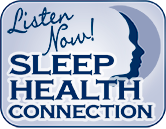1 more reason to treat your sleep apnea “dentally” – today!
A recent study from University of Wisconsin School of Medicine and Public Health, found a link between untreated sleep apnea and cancer. Those with untreated sleep apnea are 4.8% more likely to die from cancer than those without sleep apnea or sleep disordered breathing.
For years, we have know that Obstructive sleep apnea is a life threatening and life altering condition that causes a person to stop breathing repeatedly during sleep. The oxygen deprivation that results can trigger severe health problems. The restless sleep that also results from Obstructive Sleep Apnea affects the quality of life of individuals. The bed partner’s sleep can also be disrupted by his or her partner’s snoring, pauses in breathing and restless sleep.
What happens if Obstructive Sleep Apnea is not treated?
People with Obstructive Sleep Apnea have disrupted sleep resulting in low oxygen levels. Both awakenings and oxygen deprivation can trigger severe health problems and decrease quality of life due to Obstructive Sleep Apnea’s links with:
- Chronic sleepiness (Excessive Daytime Sleepiness-EDS).
- Increased Motor Vehicle Accidents (People with Obstructive Sleep Apnea have three times a higher automobile accident or work-related accident than those in the general public).
- Increased work-related accidents.
- Poor job performance.
- Depression.
- Family discord (Loud snoring also disrupts the bed partner’s sleep causing frustration and anger in their relationship.)
- Decreased quality of life.
- Strokes.
- High blood pressure.
- Decreased sex drive.
- Nocturia (a need to use bathroom frequently at night).
- Morning headache.
- Systemic Hypertension
- Cardiac Arythmias
- Myocardial Ischemia
- Cerebrovascular Disease
- Pulmonary Hypertension
And now Cancer is added to the list of health consequences of untreated sleep apnea.
If wearing a CPAP is stopping you from seeking treatment, you do have other options. Dental Sleep and TMD center of Illinois effectively and efficiently has treated sleep apnea and snoring patients with Oral Appliance Therapy. To schedule your appointment for an oral appliance consultation, all our office, 630 369-5508 or 1-800-SNORING.
Please, don’t wait another day to get the sleep you need to stay healthy for life!






(630) 369-5508